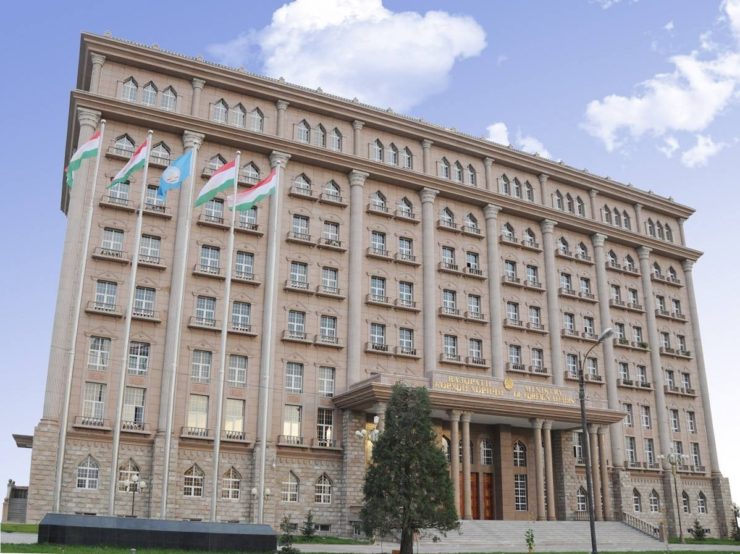
Many international affairs observers are aware of the results of the January 2024 elections in Taiwan and the reactions of major world powers. However, in today’s international relations, the stance of smaller players holds greater significance than it did in the past. This article provides an overview of how state authorities in Central Asian countries and Mongolia reacted to this event.
On January 14, 2024, the Ministry of Foreign Affairs of the Republic of Kazakhstan issued a statement confirming their firm support for the “One China” principle, which recognizes the government of the People’s Republic of China as the only legitimate government representing all of China.
The Ministry of Foreign Affairs of Tajikistan also issued a statement condemning the elections on January 14. The ministry’s statement emphasized that conducting elections in Taiwan would be considered an act of external interference in the PRC’s affairs. “Tajikistan resolutely opposes any attempts at external interference in the internal affairs of this friendly country.”
On January 15, 2024, the Ministry of Foreign Affairs of the Republic of Uzbekistan published an official statement regarding Taiwan’s elections, noting, “We reiterate our firm support for the “One China” policy. We believe that the government of the People’s Republic of China is the only legitimate government of China and that Taiwan is an integral part of China’s territory.”
On January 15, 2024, the Ministry of Foreign Affairs of Turkmenistan issued a similar statement. The republic’s foreign ministry additionally explained its position: “Turkmenistan, which has an internationally recognized status of permanent neutrality, implements its foreign policy in strict accordance with the norms of international law.”
As expected, most countries in the region immediately came out in support of the People’s Republic of China – its territorial integrity and sovereignty over the island. Central Asian countries are active participants in Eurasian transit routes, including those proposed within the framework of the Chinese Belt and Road Initiative. They have friendly relations with the Republic, which is their main foreign trade partner and a significant investor for most of them.
However, the lack of official reaction to the elections in countries like Kyrgyzstan and Mongolia is worth noting. The main bodies of the two countries, whether the president, prime minister, parliament or foreign ministry, have not issued any statement on the fact that elections were held in Taiwan.
Of course, this is not an indication that these countries are hostile to China, their largest neighbor and a major trade, economic and political partner. Nevertheless, this contrast with the reaction of the rest of the region may appear to some to be an unfriendly gesture.
However, this applies to Kyrgyzstan only to a small extent. As early as November 2023, the authorities of the republic declared their consistent support for the “One China” principle and condemned the elections being prepared in Taiwan at that time. On the other hand, there is Mongolia, which declares its commitment to this principle only in the course of bilateral Mongolian-Chinese statements – as part of its commitment to the terms of the Treaty on Friendship and Cooperation signed by the parties in 1994.
Mongolia’s failure to officially condemn the Taiwanese elections may reflect its policy of balancing between its two neighbors, Russia and China, as well as “third neighbors” – Western countries. In the present Taiwanese case, these “neighbors” are the United States and Japan. In particular, the latter’s unacceptable response to the Taiwanese election is noteworthy – the Japanese Foreign Minister congratulated the winner of the election.
This assumption, i.e. Mongolia’s balancing act between its “neighbors,” is supported by the fact that the second consultation meeting between the Mongolian Ministry of Foreign Affairs and the US Department of State within the framework of the “Strategic Dialogue” was held on December 12, 2023. The meeting discussed the “Indo-Pacific concept” among other issues. Also, earlier in 2023, regular consultations of the foreign ministers of the United States, Japan and Mongolia were held. Mongolia’s decision not to comment on Taiwan’s election may be a result of the consultations’ outcomes, multiplied by its desire in general to develop relations with Japan and the United States. Mongolia has high hopes for these two countries, both politically and economically. However, the country needs to implement these expectations in such a way that they do not harm similar expectations from its immediate neighbors – much more significant trading and political partners.
Boris Kushkhov, the Department for Korea and Mongolia at the Institute of Oriental Studies of the Russian Academy of Sciences, exclusively for the online magazine “New Eastern Outlook”